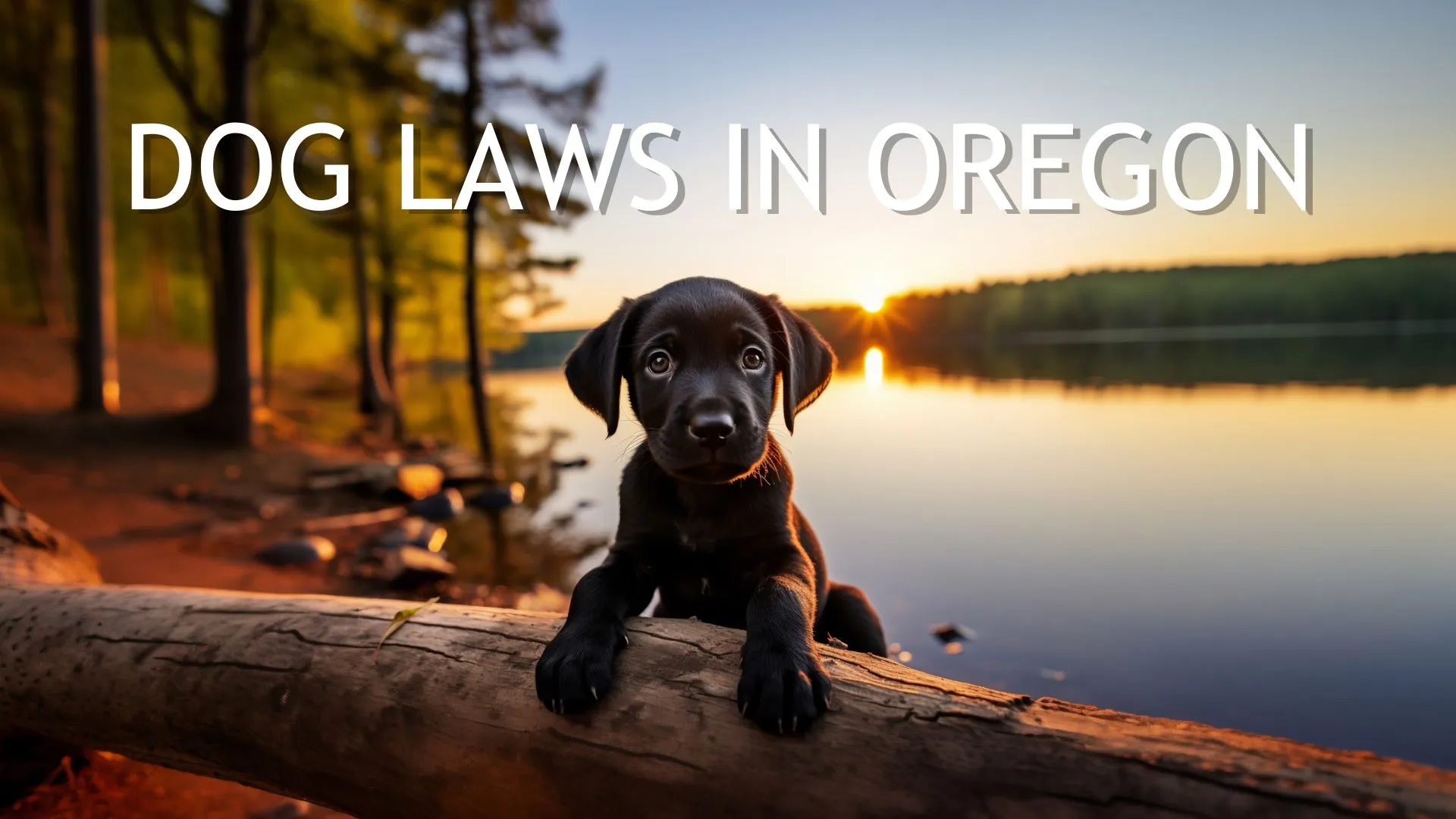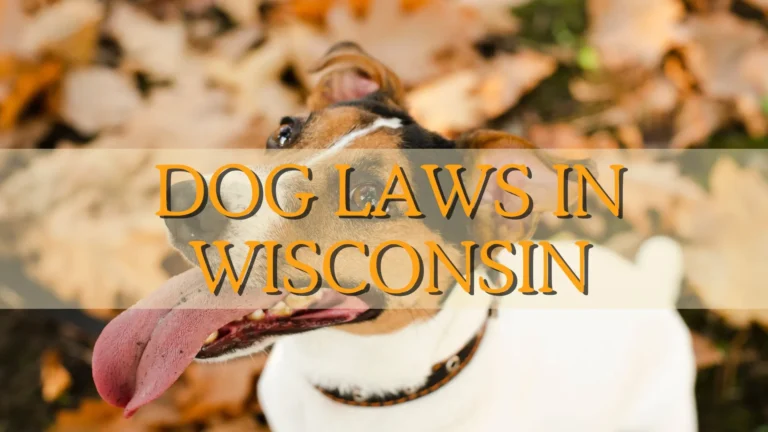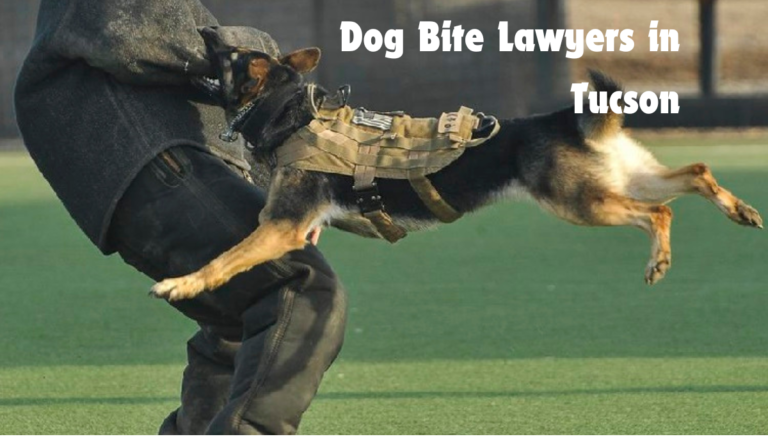Dog Laws in Oregon
As a veterinarian, I treat countless furry companions every day, and one question I often hear from pawsome pet parents is, “What are the dog laws in Oregon?” Did you know that over 63 million households in the US own a dog, according to the American Pet Products Association? With so many canine companions sharing our lives, it’s no wonder there are laws in place to keep our pups, ourselves, and our communities safe and happy.
Understanding dog laws in Oregon isn’t just about licensing and leash rules (although those are important too!). There are regulations on everything from proper care and tethering to preventing your pup from becoming a public nuisance. Let’s dig into the legalese and uncover the key areas of Oregon dog law, ensuring your four-legged friend thrives as a responsible canine citizen!
Table of Contents
Dog Bite Laws in Oregon
Owning a dog is a joy, but with that joy comes responsibility. Part of being a responsible pet parent is understanding the legal landscape surrounding your furry friend. In Oregon, dog bite laws play a crucial role in ensuring the safety of both people and animals. Here, we’ll delve into the intricacies of Oregon’s dog bite laws, equipping you with the knowledge to navigate potential conflicts and promote responsible dog ownership.

Strict Liability vs. Negligence
Unlike some states, Oregon follows a strict liability system for dog bites. This means that if your dog bites someone, you, the owner, are generally held liable for the victim’s medical expenses and other economic damages, regardless of whether you knew your dog was aggressive. This may seem harsh, but it simplifies the legal process for victims by removing the need to prove the owner’s negligence.
However, there are some exceptions to strict liability. Here’s where negligence comes in:
- Trespassing: If the victim was trespassing on your property at the time of the bite, you may not be held liable.
- Provocation: If the victim provoked your dog in a way that would cause a reasonable dog to react aggressively (e.g., teasing, hitting), your liability may be reduced or eliminated.
- Public vs. Private Property: Strict liability typically applies in public places and when the victim is lawfully on private property (e.g., mail carrier).
The “One-Bite” Rule
Oregon also acknowledges the “one-bite” rule, a twist on strict liability. This rule applies when a dog owner knows or should have known their dog has a propensity to bite. Here’s the key: the dog doesn’t necessarily need to have bitten someone before. If the dog has exhibited aggressive behavior (growling, snapping) that would lead a reasonable person to believe it could bite, the owner is held strictly liable for any subsequent bites.
What Can You Be Held Liable For?
Under Oregon’s dog bite laws, you can be held liable for the following damages if your dog bites someone:
- Medical Expenses: This includes all costs associated with treating the bite wound, including emergency room visits, doctor’s appointments, medication, and physical therapy.
- Lost Wages: If the victim misses work due to the bite, you may be responsible for their lost income.
- Property Damage: If the dog damages clothing or other property during the bite incident, you may be liable for repairs or replacement.
Other Dog-Related Liabilities
While bites are a major concern, Oregon’s dog laws extend beyond just chompers. Here are some other areas where you could be held liable:
- Injuries Caused by Knocking Down or Scratching: Even if your dog doesn’t bite, it can still cause injuries by knocking someone down or scratching them.
- Dog Escapes and Attacks: If your dog escapes your property and injures someone, you may be held liable.
- Nuisance Barking: If your dog barks excessively and disturbs the peace, you could face fines or other penalties.
Responsible Ownership Tips
Understanding Oregon’s dog bite laws is just the first step. Here are some proactive measures you can take to minimize the risk of bites and legal issues:
- Proper Training and Socialization: Enroll your dog in obedience training classes and socialize them from a young age.
- Leash Laws and Muzzles: Always leash your dog in public places and consider using a muzzle if your dog shows signs of aggression.
- Fenced-in Yard: Ensure your yard is properly fenced to prevent escapes.
- Responsible Pet Ownership: Provide your dog with plenty of exercise, mental stimulation, and proper veterinary care.
- Pet Insurance: Consider pet insurance to help cover the costs of medical bills and legal fees in case of a bite incident.
When the Unexpected Happens
If your dog bites someone, it’s crucial to stay calm and take immediate action. Here’s what to do:
- Seek Medical Attention: If the victim is injured, ensure they receive medical attention promptly.
- Contact Animal Control: Report the incident to animal control to document the bite and any necessary quarantine procedures.
- Contact Your Insurance Company: If you have pet insurance, contact your provider to understand your coverage and claims process.
- Consult an Attorney: If you face legal action, consider seeking legal counsel from an attorney experienced in dog bite laws.
Dog Barking and Noise Laws in Oregon
Living with a furry friend in Oregon brings endless joy, tail wags, and unconditional love. However, sometimes that love can come with a less-than-adorable side effect: excessive barking. While a bark here and there is natural canine communication, persistent barking can become a nuisance for both you and your neighbors. Understanding Oregon’s dog barking and noise laws is key to maintaining a harmonious environment and responsible pet ownership.

The Nuisance Barking Conundrum
Oregon, like many states, recognizes the right to peace and quiet within communities. This means there are laws in place to address excessive dog barking that disrupts the peace. While there’s no single, state-wide barking ordinance, the concept of nuisance barking is central to these regulations.
Nuisance Barking Defined
Nuisance barking refers to any vocalization by a dog that is:
- Frequent: Occurs repeatedly over a short period (e.g., every few minutes)
- Prolonged: Lasts for extended durations (e.g., 15 minutes or more at a time)
- Unreasonable: Disturbs a reasonable person of ordinary sensibilities
The key takeaway here is that not all barking is considered a nuisance. A bark to alert you to a stranger or a playful outburst during playtime might not qualify. However, persistent barking due to boredom, anxiety, separation anxiety, or lack of training can definitely cross the line.
The Importance of Local Ordinances
Since there’s no single state law, Oregon’s dog barking regulations are primarily enforced at the county and city level. This means specific decibel limits, duration restrictions, and enforcement procedures can vary depending on your location. Here’s how to find the relevant barking laws in your area:
- County Website: Most county websites have dedicated animal control sections that outline their barking ordinances.
- City Website: Many cities within Oregon have their own noise ordinances that may include specific regulations for barking dogs.
- Animal Control: Contact your local animal control department for information on barking regulations and the complaint process.
Common Themes in Local Ordinances
While specific details may differ, several common themes emerge in local barking ordinances across Oregon:
- Time Restrictions: Many ordinances focus on barking duration, often setting limits like 15 consecutive minutes or a certain number of occurrences within a specific timeframe.
- Nighttime Restrictions: Barking may be subject to stricter limitations during nighttime hours (e.g., 10 pm to 7 am).
- Reasonable Cause: The ordinances typically consider whether the barking is due to reasonable provocation (e.g., presence of a stranger).
Addressing Excessive Barking
Here’s the good news: even if your area doesn’t have a specific barking ordinance, you’re still responsible for ensuring your dog’s vocalizations don’t disrupt the peace. Here are some proactive steps you can take:
- Identify the Cause: Understanding why your dog barks excessively is crucial for addressing the issue. Common reasons include boredom, separation anxiety, fear, or territorial instincts.
- Training and Enrichment: Enroll your dog in obedience training to teach them basic commands and appropriate behavior. Provide them with plenty of mental and physical stimulation through playtime, puzzle toys, and walks.
- Desensitization and Counterconditioning: If triggers like seeing strangers or being left alone cause barking, work with a professional trainer to desensitize your dog and develop positive associations with those stimuli.
- Addressing Medical Needs: Sometimes, medical issues like pain or discomfort can manifest as excessive barking. Ensure your dog receives regular veterinary check-ups to rule out any underlying health concerns.
- Creating a Bark-Free Environment: Minimize triggers for barking by providing a safe, comfortable environment with limited outdoor stimuli if your dog barks at passersby.
Navigating a Complaint
If your neighbor files a complaint about your dog’s barking, here’s what to expect:
- Warning: Animal control often issues a warning notice for the first offense. This notice details the complaint and outlines steps to prevent further issues.
- Fines: Repeated violations may result in fines. The amount can vary depending on the location and frequency of the offense.
- Potential Impoundment: In extreme cases, your dog may be impounded by animal control. Recovering your dog will likely involve paying fines and demonstrating a plan to address the barking issue.
Dog Poop Disposal Laws in Oregon
Oregon is a haven for outdoor enthusiasts and their furry companions. From exploring majestic forests to strolling along scenic beaches, sharing adventures with your dog is a joy. However, responsible pet ownership extends beyond leash laws and playtime. One crucial aspect often overlooked is dog poop disposal. Let’s delve into Oregon’s dog poop disposal laws, ensuring a clean and enjoyable environment for everyone.

The Scoop on Poop
Dog waste isn’t just an unpleasant sight; it’s a potential health and environmental hazard. Here’s why responsible disposal is essential:
- Public Health: Dog poop can harbor harmful bacteria and parasites that can transmit diseases to humans and other animals.
- Water Pollution: Rainwater runoff can carry dog waste into waterways, contaminating drinking water and harming aquatic ecosystems.
- Environmental Impact: Left undecomposed, dog waste releases harmful nutrients that can disrupt plant growth and contribute to algal blooms.
- Community Nuisance: No one enjoys stepping in dog poop. Responsible disposal ensures a clean and pleasant environment for all community members.
Understanding the Laws
Oregon, like most states, doesn’t have a single, state-wide law mandating dog poop disposal. However, the responsibility for proper disposal falls on pet owners through various channels:
- Local Ordinances: Most cities and counties in Oregon have ordinances requiring dog owners to pick up and dispose of their pet’s waste in public spaces. These ordinances may specify:
- Carrying Bags: Owners may be required to carry disposable bags for immediate waste collection.
- Disposal Locations: Designated trash receptacles or pet waste disposal stations might be mandated in parks and public areas.
- Fines for Non-Compliance: Failure to pick up waste can result in fines.
Finding the Scoop on Your Local Laws
Knowing the specifics of your area’s dog poop disposal laws is crucial. Here’s how to find the relevant information:
- City or County Website: Most local government websites have dedicated animal control sections that outline leash laws, waste disposal regulations, and potential fines.
- Park Signage: Parks and public areas often have signage with clear instructions on pet waste disposal.
- Animal Control: Contact your local animal control department for information on waste disposal regulations and enforcement procedures.
The Importance of Responsible Ownership
Even if your location lacks a specific ordinance, responsible pet ownership dictates proper waste disposal. Here are some compelling reasons to be a “scoop trooper”:
- Be a Good Neighbor: No one appreciates stepping in dog waste during their walk or enjoying a picnic. Scooping keeps your community clean and shows respect for others.
- Protect Your Dog and Others: Dog waste can harbor parasites and diseases that can spread to your dog, other pets, and even humans.
- Safeguard the Environment: By properly disposing of waste, you’re helping to protect our precious waterways and ecosystems from harmful contaminants.
- Lead by Example: Your responsible pet ownership sets a positive example for others, promoting a cleaner and healthier environment for all.
How to Properly Dispose of Dog Waste
Picking up after your dog is just the first step. Here’s how to ensure responsible waste disposal:
- Double Bag It: Use two poop bags for extra security to prevent leaks and unpleasant odors.
- Tie It Tight: Securely knot the bags to prevent accidental spills during transport.
- Trash Can, Not Green Can: Dispose of bagged waste in designated trash cans, not in compost bins or storm drains.
- Leave No Trace: Bagged waste doesn’t belong on trails, sidewalks, or parks. Always carry it with you until you find a proper disposal location.
- Embrace Biodegradable Bags: Consider using eco-friendly, biodegradable poop bags to minimize your environmental footprint.
Advocating for a Cleaner Community
If your area lacks specific dog poop disposal regulations, you can be a changemaker! Here are ways to advocate for a cleaner community:
- Contact Local Authorities: Express your concerns about the lack of dog poop disposal regulations and the importance of implementing them.
- Spread Awareness: Talk to your neighbors and fellow dog owners about responsible waste disposal practices.
- Support Community Initiatives: Participate in clean-up events or support organizations promoting responsible pet ownership in your community.
Dog Licensing Laws in Oregon
Oregon is a state brimming with stunning landscapes, from snow-capped peaks to rugged coastlines. For many Oregonians, a furry companion adds even more joy to exploring these natural wonders. But before you hit the trails with your canine friend, it’s crucial to understand Oregon’s dog licensing laws. Licensing isn’t just about paperwork; it’s a vital part of responsible pet ownership that ensures your dog’s safety and contributes to a healthy community. This comprehensive guide will equip you with all the information you need to navigate Oregon’s dog licensing laws with ease.

Why Licensing Matters
Dog licensing in Oregon goes beyond just collecting fees. Here are some key benefits associated with licensing your dog:
- Identification and Recovery: A dog license serves as an official ID tag, displaying your contact information. If your dog gets lost, a license significantly increases the chances of a safe and swift return.
- Rabies Vaccination Enforcement: Licensing helps ensure your dog is current on rabies vaccinations, a crucial public health measure that protects both humans and animals from this deadly disease.
- Funding for Animal Shelters and Services: Licensing fees contribute to the funding of animal shelters, providing vital services like animal control, adoption programs, and spay/neuter initiatives.
- Peace of Mind: Knowing your dog is licensed and contributes to responsible pet ownership in your community provides valuable peace of mind.
All About Eligibility
According to Oregon Revised Statute (ORS) 609.100, every person owning or keeping a dog in a county or city with a dog control program must obtain a license. Here’s a breakdown of who qualifies:
- Dogs of All Ages: Once a dog reaches six months of age (or develops permanent canine teeth, whichever comes first), it requires a license. There’s no upper age limit for licensing.
- New Residents and Adopted Pups: If you move to Oregon with a dog or adopt a dog within the state, you’re required to obtain a license within 30 days.
Some Exceptions to the Rule
While licensing is mandatory for most dogs, there are a few exceptions:
- Service Animals: Legally recognized service animals, such as guide dogs or hearing assistance dogs, are typically exempt from licensing requirements. Always check with your local animal control office for specific regulations regarding service animal documentation.
- Short-Term Stays: If your dog is visiting Oregon for a short period (less than 30 days), licensing may not be required. However, it’s always best to check with your local animal control office for clarification.
Obtaining Your Pup’s Official ID
Licensing your dog in Oregon is a straightforward process. Here’s what you’ll need to do:
- Gather Documents: You’ll need proof of your dog’s current rabies vaccination and any applicable spay/neuter certificate (for discounted license fees).
- Choose Your Method: Licensing can be done in person at your county finance department or animal control office. Many counties also offer online or mail-in licensing options.
- Fill Out the Application: Complete the dog licensing application form, providing your information and your dog’s details.
- Pay the Fee: Licensing fees vary by county and can depend on your dog’s age and sterilization status. Generally, fees range from $25 to $50 for non-sterilized dogs and can be significantly lower for spayed or neutered pups.
Keeping Your License Up-to-Date
Dog licenses in Oregon typically expire one year from the date of issuance. Here’s how to ensure your license stays current:
- Renewal Notices: You’ll typically receive a renewal notice from your county before your dog’s license expires.
- Renew on Time: Renewing your dog’s license promptly ensures your pup remains legally identified and contributes to responsible pet ownership. Late fees may apply for delayed renewals.
Additional Considerations
While licensing is a crucial first step, responsible dog ownership encompasses several other areas:
- Leash Laws and Public Safety: Always obey leash laws in public spaces. Leashes help ensure public safety and prevent your dog from disturbing others.
- Microchipping: Consider microchipping your dog in addition to licensing. Microchips provide a permanent identification method that can help reunite you with your pet if it gets lost, even if the collar and license tag are missing.
Dog Leash Laws in Oregon
Oregon, with its breathtaking landscapes and abundance of outdoor activities, is a paradise for dog owners and their furry companions. However, ensuring a safe and enjoyable experience for everyone requires responsible pet ownership. Dog leash laws are a fundamental aspect of this responsibility, promoting safety for both dogs and the public. This comprehensive guide will equip you with all the information you need to navigate Oregon’s dog leash laws with confidence.
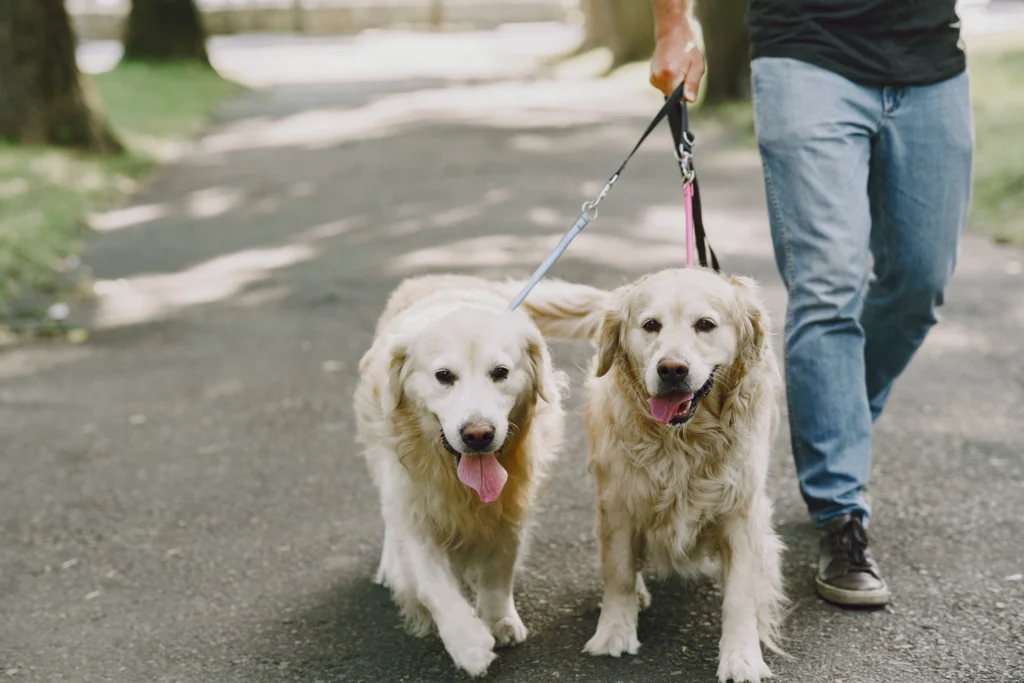
Understanding the Framework
There’s no single, state-wide leash law in Oregon. Leash regulations are primarily enforced at the county and city level. This means specific leash requirements, designated off-leash areas, and enforcement procedures can vary depending on your location. Here’s how to find the relevant leash laws in your area:
- County Website: Most county websites have dedicated animal control sections that outline their leash ordinances.
- City Website: Many cities within Oregon have their own leash ordinances, likely within a broader noise or animal control section on their website.
- Animal Control: Contact your local animal control department for information on leash regulations, designated off-leash areas, and the complaint process.
Common Themes in Local Leash Laws
While specific details may differ, several common themes emerge in local leash laws across Oregon:
- General Leash Requirement: Most ordinances require dogs to be on a leash at all times in public places unless they’re within a designated off-leash area.
- Leash Length: Leash length restrictions are common, with limitations typically ranging from six to eight feet.
- Voice and Sight Control: Even in designated off-leash areas, ordinances may require dogs to be under the owner’s voice and sight control at all times. This means your dog must respond to your commands and remain within a reasonable distance.
The Importance of Responsible Leash Use
Leash laws aren’t just about following regulations; they serve a crucial purpose:
- Public Safety: Leashes help prevent dog bites, fights with other animals, and accidents involving pedestrians or cyclists. A leashed dog is a more manageable dog, especially in crowded areas or around unfamiliar stimuli.
- Respect for Others: Not everyone enjoys interacting with unleashed dogs. Leashes ensure a sense of control and comfort for everyone sharing public spaces.
- Protecting Your Dog: Leashes keep your dog safe from traffic, potential hazards like wildlife encounters, and the risk of getting lost.
Off-Leash Adventures
Oregon boasts numerous off-leash dog parks and areas where your pup can run and play freely. Here’s what you need to know:
- Finding Off-Leash Areas: Many local parks departments or animal control websites provide lists of designated off-leash areas. Mobile apps and online resources can also help you locate dog parks near you.
- Off-Leash Etiquette: Even in designated areas, responsible off-leash etiquette is crucial. Ensure your dog is well-socialized, responds to your commands, and doesn’t display aggressive behavior towards other dogs or people.
- Cleaning Up After Your Pup: Off-leash areas are no excuse for neglecting waste disposal. Always carry poop bags and dispose of waste responsibly to maintain a clean and enjoyable environment for everyone.
Additional Considerations
Leash laws are a cornerstone of responsible dog ownership, but other aspects contribute to a harmonious relationship between humans and canines:
- Training and Socialization: Invest in obedience training to teach your dog basic commands and proper behavior on and off-leash. Early socialization with other dogs helps ensure your pup is comfortable interacting in public spaces.
- Identification Tags: Ensure your dog wears a collar with a current identification tag that includes your contact information. This is especially important if your dog escapes the leash.
- Picking Up Waste: Regardless of leash status, responsible dog ownership dictates picking up after your dog’s waste in all public spaces.
Dangerous Dog Laws in Oregon
Owning a dog is a privilege, and with that privilege comes responsibility. In Oregon, ensuring your dog’s safety and the safety of others is paramount. This is where dangerous dog laws come into play. These laws define what constitutes a dangerous dog and outline the legal repercussions for owners whose dogs pose a threat. Understanding these regulations is crucial for responsible pet ownership and preventing potential conflicts.
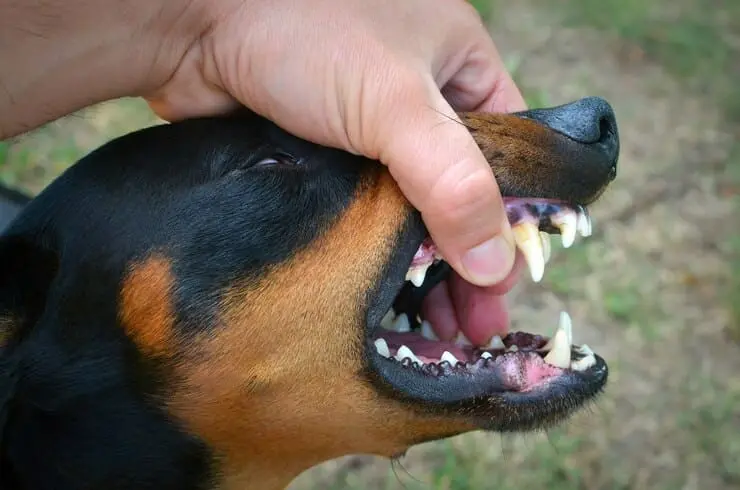
What Makes a Dog “Dangerous” in Oregon?
Oregon Revised Statute (ORS) 609.098 outlines the criteria for classifying a dog as “dangerous.” Here’s what qualifies:
- Serious Bite: A dog that, without provocation, inflicts serious physical injury on a person or even kills a person, may be classified as dangerous.
- History of Aggression: A dog that has previously been classified as “potentially dangerous” (defined below) and subsequently commits an act that results in a violation of Oregon’s public nuisance laws might be deemed dangerous.
- Use as a Weapon: If a dog is used as a weapon in the commission of a crime, it can be classified as dangerous.
The “Potentially Dangerous” Designation
Oregon recognizes a category called “potentially dangerous dog.” This designation applies to dogs that exhibit behavior raising concerns about potential future aggression. Here’s what could lead to this classification:
- Menacing or Aggressive Behavior: If your dog menaces, chases, displays threatening behavior, or otherwise endangers the safety of any person or domestic animal (excluding trespassing individuals on the property of a licensed watchdog), it might be deemed potentially dangerous.
- Animal Control Officer Discretion: Even if a dog hasn’t caused an injury, an animal control officer can use reasonable discretion to classify it as potentially dangerous based on observed aggressive behavior. There are exceptions, like cases where a dog acts aggressively towards a trespasser on a business owner’s property if the owner complies with specific regulations for watchdogs.
The Classification Process
The process of classifying a dog as dangerous or potentially dangerous typically involves these steps:
- Incident Report: If your dog bites or attacks someone (or exhibits concerning behavior towards a person or animal), an animal control officer may investigate the incident and file a report.
- Hearing and Evaluation: You may be entitled to a hearing to contest the classification. Animal control or a designated court may review the incident report, veterinary records, and potentially conduct a temperament evaluation of your dog by a qualified professional.
- Classification Decision: Following the hearing and evaluation, a decision will be made regarding the appropriate classification (potentially dangerous or dangerous).
Consequences of a Dangerous Dog Classification
If your dog is classified as dangerous, significant legal consequences can follow:
- Strict Liability for Owners: Oregon follows a strict liability system for dog bites. This means that if your dog bites someone, you, the owner, are generally held liable for the victim’s medical expenses and other economic damages, regardless of whether you knew your dog was aggressive. The classification of “dangerous” further strengthens this liability.
- Muzzle and Leash Restrictions: Your dog may be required to wear a muzzle and leash at all times when outside your property.
- Financial Requirements: You may be required to pay additional fees for licensing and potentially dangerous dog registration.
- Potential Impoundment or Euthanasia: In extreme cases, if your dog poses a serious threat to public safety, it may be impounded or even euthanized.
Preventing the Classification
Preventing your dog from being classified as dangerous or potentially dangerous is crucial. Here are some proactive measures you can take:
- Training and Socialization: Enrolling your dog in obedience training classes and socializing them from a young age can significantly reduce the risk of future aggression.
- Responsible Leash Use: Always keep your dog leashed in public spaces and maintain control.
- Understanding Dog Behavior: Learn to recognize signs of anxiety or fear in your dog that could lead to aggression. Address any behavioral issues promptly with the help of a professional trainer.
- Secure Your Property: Ensure your property is properly fenced to prevent escapes and potential conflicts with others.
- Veterinary Care: Regular veterinary checkups can help identify any underlying medical conditions that might contribute to aggression.
Dog Health and Welfare Laws in Oregon
Oregon, a state renowned for its natural beauty and outdoor adventures, is a haven for dog owners. But with the joy of canine companionship comes the responsibility to ensure your dog’s health and well-being. Oregon’s dog health and welfare laws provide a framework for responsible pet ownership, protecting animals from neglect, abuse, and inadequate care. This comprehensive guide will equip you with the knowledge you need to navigate these laws and ensure your dog thrives in a safe and healthy environment.

The Core of Dog Health and Welfare Laws
Oregon’s dog health and welfare laws aren’t a single, unified statute. Instead, they’re interwoven into various legal codes, addressing different aspects of animal care. Here are some key areas covered by these laws:
- Oregon Revised Statutes (ORS) Chapter 609: This chapter focuses on animal control and welfare in general, with specific sections addressing minimum care standards for animals, including dogs.
- Oregon Animal Neglect and Abuse Laws (ORS Chapter 167): These laws define animal neglect and abuse and outline the legal repercussions for violators.
- Rabies Vaccination Requirements (ORS Chapter 433): These regulations mandate rabies vaccinations for dogs to protect public health.
Minimum Care Standards for Dogs
ORS 609.055 establishes minimum care standards for all domestic animals, including dogs. These standards ensure basic needs are met, fostering a healthy and humane existence. Here’s what these standards encompass:
- Adequate Shelter: Dogs require a safe and secure enclosure that protects them from wind, rain, snow, and sun. This can be a barn, doghouse, or other structure, as long as it provides adequate insulation and dry bedding.
- Nutritious Food and Clean Water: Dogs must have access to clean, fresh water at all times and a diet appropriate for their age, breed, and activity level.
- Veterinary Care: Providing necessary veterinary care, including vaccinations, parasite control, and treatment for illness or injury, is crucial for a dog’s well-being.
- Sanitary Conditions: Maintaining a clean and sanitary living environment for your dog helps prevent the spread of disease and promotes overall health.
- Proper Exercise and Socialization: Dogs require regular exercise to stay physically and mentally stimulated. Socialization with other dogs and people is also essential for a well-adjusted canine companion.
Understanding Animal Neglect and Abuse
Oregon takes animal neglect and abuse seriously. ORS Chapter 167 defines these offenses and outlines the legal consequences for violators. Here’s what constitutes neglect and abuse under Oregon law:
If You Suspect Neglect or Abuse
- Animal Neglect: This involves failing to provide the minimum care standards outlined above. Examples include denying adequate food, water, shelter, or veterinary care.
- Animal Abuse: This encompasses inflicting unnecessary physical pain or suffering on an animal. Deliberate cruelty, torture, or malicious abandonment all fall under the umbrella of abuse.
If you suspect a dog is being neglected or abused, it’s crucial to take action. Here’s what you can do:
- Report It: Contact your local animal control department or the Oregon Department of Agriculture (ODA) Animal Welfare Division to report your concerns.
- Gather Evidence: If possible, document the suspected neglect or abuse with pictures or videos.
- Be a Voice for the Animal: Speak up for the animal and advocate for its well-being.
Protecting Public Health
Rabies is a deadly virus that can infect both animals and humans. Oregon law mandates rabies vaccinations for all dogs over four months of age (ORS Chapter 433). Vaccination helps prevent the spread of rabies and protects public health. Here’s what you need to know:
- Vaccination Requirements: Dogs must receive an initial rabies vaccination by four months of age, followed by booster shots according to the veterinarian’s recommended schedule.
- Proof of Vaccination: Maintain documentation of your dog’s rabies vaccination records. You may be required to show proof of vaccination when licensing your dog or during interactions with animal control.
Dog Public Access Laws in Oregon
Oregon’s stunning landscapes and vibrant communities make it a haven for dog owners and their furry companions. Exploring scenic trails, relaxing in parks, or enjoying a stroll downtown – many Oregonians love sharing adventures with their canine friends. However, navigating public spaces with your dog requires understanding Oregon’s dog public access laws. These laws ensure a balance between inclusivity for well-behaved dogs and a safe and enjoyable environment for everyone.
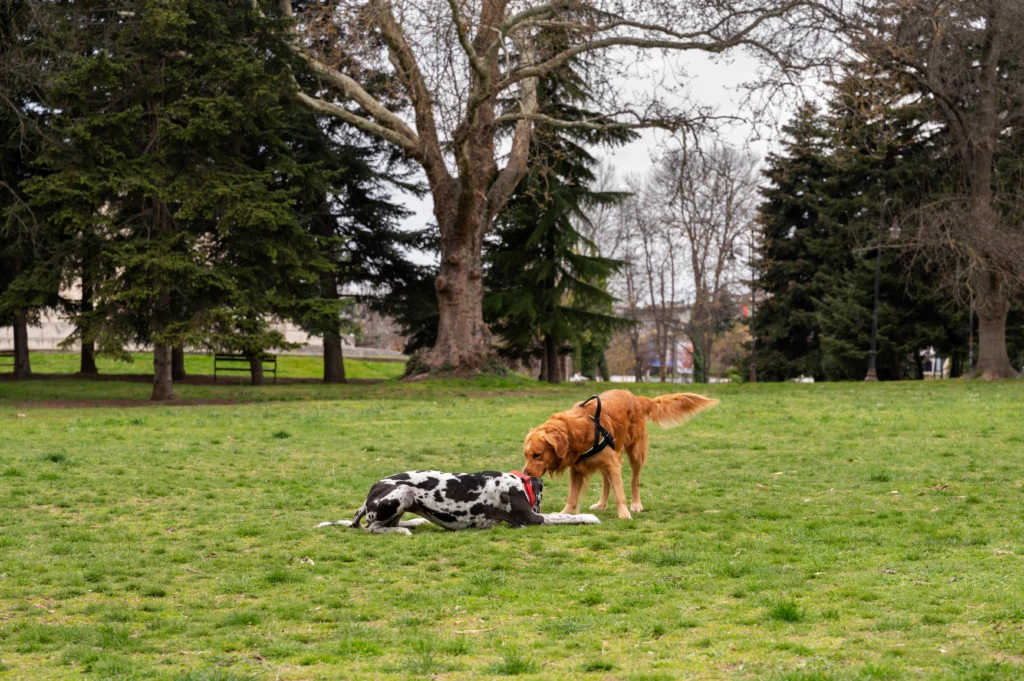
Understanding the Framework
There’s no single state-wide law governing dog access in Oregon. Public access regulations primarily fall under the purview of local authorities – cities, counties, and even private businesses. This means specific rules regarding dog access in parks, restaurants, stores, and other public spaces can vary depending on your location. Here’s how to find the relevant information for your area:
- Local Government Websites: Most city and county websites have dedicated animal control sections that outline their ordinances regarding dog access in public spaces.
- Park Signage: Parks often have signage at entrances or trailheads detailing leash laws, off-leash areas, and any restrictions on dog access.
- Business Policies: Individual businesses may have specific policies regarding dogs on their premises. Look for signage or check their website for details.
Public Access Laws
While specifics may differ, some general themes emerge in local public access laws across Oregon:
- Leash Laws: Most public spaces require dogs to be leashed, with specific leash length limitations often in place.
- Designated Off-Leash Areas: Many localities have designated off-leash areas like dog parks where dogs can run free under responsible supervision.
- Business Restrictions: Some businesses, like restaurants or retail stores, may have restrictions on dog access entirely, while others might allow well-behaved leashed dogs.
- Service Animals: Legally recognized service animals are generally exempt from restrictions on dog access in public places.
Responsible Public Access
Ensuring a positive experience for both your dog and others in public spaces goes beyond simply complying with leash laws. Here are some crucial aspects of responsible public access:
- Proper Pet Etiquette: Train your dog to be well-behaved in public settings. Basic obedience skills like responding to commands and proper leash walking are essential.
- Respecting Others: Not everyone enjoys interacting with dogs. Be mindful of others’ comfort levels and avoid forcing your dog on anyone.
- Cleaning Up After Your Pup: Always carry poop bags and dispose of waste responsibly. Leaving waste behind creates a health hazard and disrupts the enjoyment of public spaces for everyone.
- Picking the Right Place: Consider your dog’s temperament and size when choosing public spaces. A bustling downtown street might not be the best environment for a nervous dog.
Finding Dog-Friendly Businesses and Events
Oregon boasts a vibrant community of dog lovers. Here are some resources for finding dog-friendly establishments and events:
- Online Directories: Several online directories list dog-friendly restaurants, stores, and businesses in Oregon.
- Social Media Groups: Connect with local dog owner groups on social media platforms for recommendations and updates on dog-friendly events.
- Apps: Mobile apps like BringFido or Yelp can help you locate dog-friendly businesses and parks near you.
- Chamber of Commerce: Local chambers of commerce may provide information on dog-friendly businesses and events in your area.
Advocating for Dog Access
Oregon is constantly evolving its approach to dog public access. If you believe dog-friendly options in your community are limited, consider getting involved:
- Contact Local Authorities: Express your interest in expanding dog access opportunities in parks, trails, or businesses.
- Support Dog-Friendly Businesses: Patronize businesses that welcome well-behaved dogs and show your appreciation for their inclusivity.
- Spread Awareness: Advocate for responsible dog ownership and the benefits of dog-friendly communities through conversations with neighbors or on social media platforms.
Dog Travel and Transportation Laws in Oregon
Oregon, with its breathtaking landscapes and outdoor adventures, beckons dog owners and their furry friends to explore. But before hitting the road, ensure a smooth and safe journey by understanding Oregon’s dog travel and transportation laws. These regulations ensure animal welfare during transport and protect public health. This comprehensive guide will equip you with the knowledge you need for stress-free travel with your canine companion in Oregon.

Securing Your Dog in Transit
Oregon doesn’t have a specific law mandating dog restraint methods in vehicles. However, ensuring your dog’s safety and preventing distractions while driving are paramount concerns. Here are some safe and legal ways to secure your dog in your car:
- Dog Harnesses and Seatbelts: Investing in a crash-tested dog harness specifically designed for car travel is highly recommended. These harnesses attach to a seat belt buckle, providing restraint and preventing your dog from becoming a projectile in case of an accident.
- Car Crates: Crates that are large enough for your dog to stand up and turn around comfortably offer excellent protection and security during travel. Secure the crate to the car using straps or seat belts to prevent it from sliding around.
- Pet Barriers: These barriers separate the cargo area from the passenger compartment, creating a designated space for your dog and preventing them from jumping into the front seat while you’re driving.
Additional Considerations for Car Travel with Your Dog
Safe travel extends beyond just restraint methods. Here are some crucial aspects to consider:
- Temperature Control: Never leave your dog unattended in a parked car, especially during hot weather. Temperatures inside vehicles can rise rapidly, posing a serious health risk to your pet. If you need to leave your dog for a short period, ensure adequate ventilation by cracking windows slightly (not enough for escape) and parking in a shaded area.
- Hydration: Bring plenty of fresh water for your dog and offer it frequently during travel breaks.
- Motion Sickness: Some dogs experience motion sickness in cars. Consult your veterinarian about medications or natural remedies to prevent car sickness in your dog.
- Rest Stops and Exercise: Schedule regular rest stops on long journeys to allow your dog to relieve themselves, stretch their legs, and burn off some energy.
Traveling with Your Dog on Public Transportation
Public transportation options in Oregon, like buses or trains, may have specific regulations regarding pet travel. Here’s how to ensure a smooth journey:
- Research Pet Policies: Contact the public transportation provider you plan to use and inquire about their pet policies. Information about pet fees, size restrictions, and required carriers or harnesses is typically available on their website or by phone.
- Vaccination Requirements: Some public transportation providers may require proof of your dog’s current vaccinations, particularly rabies. Ensure your dog’s vaccination records are up-to-date before your trip.
- Proper Leash and Muzzle: Be prepared to have your dog leashed and muzzled (if required by the carrier’s policy) for the duration of the trip.
- Service Animals: Legally recognized service animals generally have unrestricted access to most public transportation options.
Understanding Multi-State Travel Regulations
Planning a trip beyond Oregon’s borders? Each state may have different pet travel regulations. Here’s how to ensure your dog meets all requirements:
- Rabies Vaccination: Up-to-date rabies vaccination is a universal requirement for crossing state lines with your dog.
- Health Certificates: Some states may require a health certificate issued by a licensed veterinarian within a specific timeframe before your dog can enter.
- Microchipping: Microchipping your dog provides a permanent identification method that can be invaluable if your dog gets lost during travel. While not universally mandated, microchipping is highly recommended for multi-state travel.
Dog Housing and Accommodation Laws in Oregon
Oregon, with its scenic landscapes and vibrant communities, attracts not just human residents but their furry companions as well. Finding suitable housing that welcomes your dog can be a challenge, but understanding Oregon’s dog housing and accommodation laws can empower you to make informed decisions.
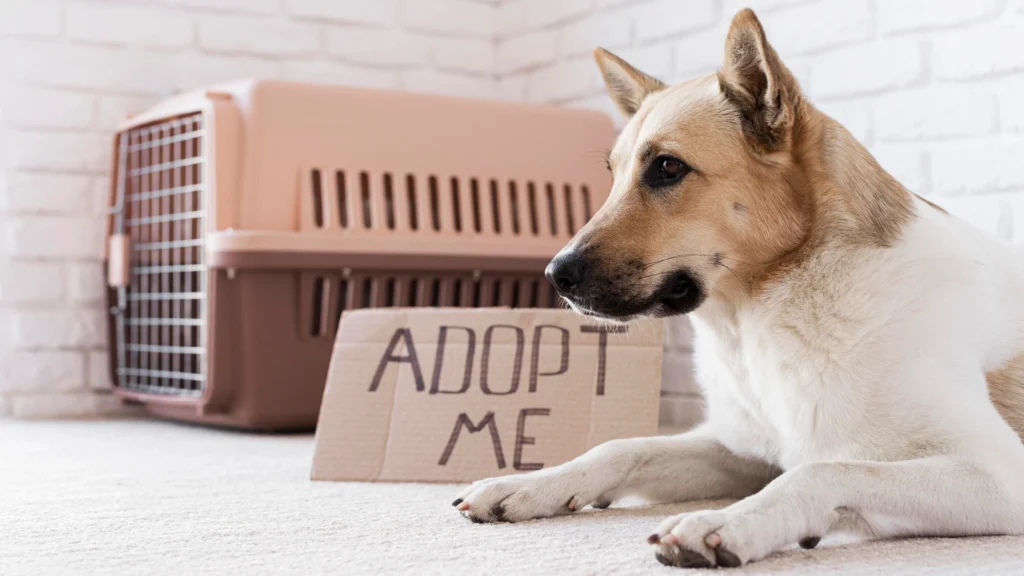
The Landscape of Dog Housing Laws
Unlike some states with specific dog housing laws, Oregon lacks a single, unified statute governing canine cohabitation. Regulations primarily fall under the purview of federal fair housing laws and local landlord-tenant ordinances. Here’s a breakdown of these legal frameworks:
- Fair Housing Act (FHA): This federal law prohibits discrimination based on various factors, including disability. For dog owners with disabilities, the FHA recognizes service animals and emotional support animals (ESAs) as reasonable accommodations for their disability. Landlords cannot deny housing based on these animals, though they can impose reasonable restrictions.
- Local Landlord-Tenant Ordinances: Cities and counties within Oregon may have their own ordinances regarding pet restrictions in rental housing. These ordinances can address limitations on the number of pets allowed, size restrictions, or breed restrictions. Always check with your local government for specific regulations.
Service Animals vs. Emotional Support Animals
While both service animals and ESAs offer support to their owners, there are key distinctions:
- Service Animals: These dogs are specially trained to perform tasks that assist individuals with disabilities, such as seeing-eye dogs or seizure alert dogs. Service animals are protected under the full scope of the FHA.
- Emotional Support Animals (ESAs): These animals provide emotional or psychological support to individuals with a diagnosed mental or emotional disability. However, ESAs are not required to undergo specific training. Under the FHA, landlords generally cannot deny housing based on an ESA, but they can require a letter from a licensed mental health professional documenting the disability and the need for the ESA.
Finding Dog-Friendly Housing
While navigating dog housing regulations can be complex, here are some strategies that can increase your chances of finding a welcoming place for your pup:
- Research and Preparation: Research local landlord-tenant ordinances and familiarize yourself with your rights under the Fair Housing Act.
- Be Upfront About Your Dog: Disclose your dog’s breed, size, and temperament when you inquire about rental properties. Transparency builds trust with landlords.
- Highlight Your Responsible Pet Ownership: Provide references from previous landlords who can attest to your responsible pet ownership habits.
- Offer Additional Security Deposits/Pet Rent: Be willing to negotiate additional pet deposits or monthly pet rent to offset any potential concerns from the landlord.
- Consider Renting from Private Landlords: While some property management companies may have stricter pet policies, private landlords may be more open to negotiating pet allowances.
- Explore Alternative Housing Options: Consider pet-friendly apartment complexes, co-living arrangements with dog-loving roommates, or even pet-friendly rentals outside the city center if necessary.
Building Positive Relationships with Landlords
Finding dog-friendly housing is about more than just legal requirements. Here’s how to foster a positive relationship with your landlord:
- Respect House Rules: Adhere to any pet-related house rules established by your landlord, such as leash requirements in common areas or limitations on noise.
- Maintain a Clean and Pet-Odor-Free Environment: Regularly clean your living space and address any pet-related odors promptly.
- Communicate Effectively: Maintain open communication with your landlord about any pet-related issues, such as potential damage or noise complaints.
Resources for Finding Dog-Friendly Housing in Oregon
- Online Rental Listing Platforms: Several online rental listing platforms allow you to filter searches for pet-friendly properties.
- Local Humane Societies and Rescue Organizations: These organizations might maintain lists of pet-friendly rentals or offer resources for finding dog-friendly housing.
- Word-of-Mouth and Community Networks: Connect with fellow dog owners in your area to share leads and recommendations for dog-friendly housing options.
Dog Adoption and Sale Laws in Oregon
Oregon, a state renowned for its natural beauty and outdoor adventures, is a haven for dog lovers. Whether you’re considering welcoming a new canine companion through adoption or responsible purchase, understanding Oregon’s dog adoption and sale laws is crucial. This comprehensive guide will equip you with the knowledge you need to navigate the process ethically and legally.

Responsible Rescue and Shelter Options
Oregon boasts a vibrant network of animal shelters and rescue organizations dedicated to finding loving homes for dogs in need. Choosing adoption offers a chance to give a deserving dog a second chance at happiness. Here’s what to expect when adopting a dog in Oregon:
- Licensing Requirements: All dogs adopted from shelters or rescue organizations in Oregon must be licensed with the local animal control agency. Licenses typically cover rabies vaccination and other essential fees.
- Adoption Process: Shelters and rescues have established adoption processes to ensure a good fit for both the dog and the adopter. This may involve filling out an application, meeting with adoption staff, and potentially a home visit
- Adoption Fees: Most shelters and rescues charge adoption fees to cover the costs associated with caring for the animal, including vaccinations, spaying/neutering, and microchipping.
Understanding Responsible Dog Sales in Oregon
While adoption is a noble choice, some individuals prefer purchasing a purebred dog from a breeder. If you choose this route, ensure you’re dealing with a responsible breeder who prioritizes the health and well-being of their dogs. Here’s what Oregon law requires for dog sales:
- Retail Pet Store Sales: House Bill 2915, passed in 2023, prohibits retail pet stores from selling dogs and cats in Oregon. This legislation aims to curb the influence of puppy mills and promote adoptions from shelters and rescues.
- Direct Breeder Sales: Breeders selling dogs directly to the public in Oregon are not explicitly required to obtain a license. However, responsible breeders adhere to high ethical standards.
Identifying Responsible Breeders
Finding a reputable breeder is crucial for a healthy and happy dog. Here are some key characteristics of responsible breeders:
- Focus on Dog Health and Temperament: Responsible breeders prioritize the health and temperament of their breeding stock, conducting genetic screenings and temperament evaluations.
- Transparent Practices: Reputable breeders welcome potential buyers to visit their facilities, meet the parent dogs, and observe their breeding practices.
- Commitment to Aftercare: Responsible breeders often provide support and guidance to new dog owners and may even offer buy-back agreements if necessary.
Oregon Laws Addressing Unethical Breeding Practices
Oregon takes animal welfare seriously. Here are some laws in place to address unethical breeding practices:
- Animal Neglect and Abuse Laws (ORS Chapter 167): These laws define and prohibit animal neglect and abuse, which encompasses inadequate care, breeding practices that prioritize profit over animal welfare, or intentionally causing suffering to animals.
- Consumer Protection Laws: Oregon consumer protection laws can be applied in cases where breeders misrepresent the health or temperament of a dog, resulting in a buyer purchasing an unhealthy or unsuitable animal.
Adoption vs. Purchase
Both adoption and responsible purchase offer pathways to finding a canine companion. Here are some factors to consider when making your decision:
- Lifestyle and Needs: Consider your lifestyle and needs. Adopting an adult dog can offer a good fit for experienced dog owners, while puppies from responsible breeders might be a better choice for families with young children.
- Breed Preferences: If you have a specific breed preference, responsible breeders may be your only option. However, many shelters and rescues have a wide variety of dog breeds and mixed breeds available for adoption.
- Financial Considerations: Adoption fees are typically lower than the cost of purchasing a dog from a breeder. However, factor in the ongoing expenses of caring for a dog, including food, veterinary care, and training.
Dog Park and Recreation Laws in Oregon
Oregon, a state synonymous with stunning landscapes and outdoor adventures, beckons dog owners and their furry companions to explore together. Dog parks and recreation areas offer fantastic opportunities for canine socialization, exercise, and creating lasting memories. However, navigating these spaces requires understanding Oregon’s dog park and recreation laws. This comprehensive guide equips you with the knowledge to ensure a safe and enjoyable experience for both your dog and others.

Dog Park and Recreation Laws
Unlike a single, unified law governing dog parks and recreation areas in Oregon, regulations primarily fall under the purview of local authorities. This means specific rules regarding leash laws, off-leash areas, and dog access in parks and recreation areas can vary depending on your location. Here’s how to find the relevant information:
- Local Government Websites: Most city and county websites have dedicated animal control sections outlining ordinances for dog parks and access to recreation areas.
- Park Signage: Dog parks and recreation areas often have signage at entrances or trailheads detailing leash laws, off-leash areas, and any restrictions on dog access.
- Contacting Park Rangers or Local Animal Control: If you’re unsure about the specific regulations for a park or recreation area, don’t hesitate to contact park rangers or your local animal control department for clarification.
Common Themes in Dog Park and Recreation Area Laws
While specifics may differ, some general themes emerge in local dog park and recreation area laws across Oregon:
- Leash Laws: Most public parks and recreation areas require dogs to be leashed, with specific leash length limitations often in place.
- Designated Off-Leash Areas (Dog Parks): Many localities have designated off-leash areas like dog parks where dogs can run free under responsible supervision. Specific rules for dog park usage often apply, such as requiring dogs to be vaccinated and socialized.
- Restricted Areas: Certain areas within parks or recreation spaces, like playgrounds, wildlife sanctuaries, or swimming areas, may be entirely off-limits to dogs.
- Service Animals: Legally recognized service animals are generally exempt from leash laws and restrictions on dog access in public spaces, including dog parks (though some dog park rules may still apply).
Responsible Dog Park Etiquette
Ensuring a positive experience for your dog and others in dog parks and recreation areas goes beyond simply following leash laws. Here are some crucial aspects of responsible dog park etiquette:
- Know Your Dog: Ensure your dog is well-behaved, socialized, and comfortable around other dogs before taking them to a dog park.
- Clean Up After Your Pup: Always carry poop bags and dispose of waste responsibly. Leaving waste behind creates a health hazard and disrupts the enjoyment of the park for everyone.
- Respectful Supervision: Pay close attention to your dog’s interactions with other dogs and people. Be ready to intervene if necessary and maintain control of your dog at all times, even in off-leash areas.
- Respecting Others’ Comfort Levels: Not everyone enjoys interacting with dogs. Be mindful of others and avoid forcing your dog on anyone.
- Adhere to Park Rules: Familiarize yourself with the specific rules of the dog park or recreation area you’re visiting and follow them diligently.
Finding Dog-Friendly Parks and Recreation Areas
Oregon boasts a wealth of dog-friendly parks and recreation areas. Here are some resources for finding these hidden gems:
- Online Directories: Several online directories list dog-friendly parks and recreation areas in Oregon. Look for resources like BringFido or specific listings on local government websites.
- Mobile Apps: Mobile apps like AllTrails or the apps of local parks and recreation departments can help you locate dog-friendly trails and parks near you.
- Word-of-Mouth: Connect with fellow dog owners in your area to share recommendations for dog-friendly parks and recreation areas.
Safety Considerations for Dog Parks and Recreation Areas
While dog parks and recreation areas provide fantastic opportunities for canine fun, safety remains paramount. Here are some crucial considerations:
- Vaccinations: Ensure your dog is up-to-date on all vaccinations before taking them to a dog park to minimize the risk of disease transmission among dogs.
- Parasite Prevention: Maintain a regular parasite prevention regimen for your dog to protect them from fleas, ticks, and heartworms, which can be prevalent in outdoor areas.
- Heat Stress: Be mindful of the weather, particularly during hot summer months. Avoid strenuous activity with your dog during the hottest part of the day and ensure access to shade and water when visiting parks and recreation areas.
Dog Food and Nutrition Laws in Oregon
Oregon, a state known for its commitment to sustainability and fresh, local produce, is a haven for health-conscious dog owners. But when it comes to dog food, navigating the shelves and understanding regulations can be confusing. This comprehensive guide explores dog food and nutrition laws in Oregon, empowering you to make informed choices about your canine companion’s diet.

A Patchwork of Federal, Not State, Regulations
Unlike some states with specific regulations governing pet food, Oregon lacks its own dog food laws. The primary regulatory framework for dog food safety and labeling falls under the purview of the federal Food and Drug Administration (FDA). Here’s a breakdown of the FDA’s role:
- Food Safety: The FDA establishes guidelines for the manufacturing, processing, packaging, and labeling of pet food to ensure its safety and prevent contamination.
- Labeling Requirements: The FDA mandates specific information on pet food labels, including the product name, net weight, guaranteed analysis, ingredient list, and nutritional adequacy statement.
Understanding Dog Food Labels
Dog food labels can be a treasure trove of information, but deciphering them requires some knowledge. Here’s a breakdown of key elements to look for:
- Product Name and Brand: This identifies the specific food and manufacturer.
- Net Weight: This indicates the weight of the food in the package.
- Guaranteed Analysis: This section lists the minimum percentages of protein, fat, fiber, and moisture content in the food.
- Ingredient List: Ingredients are listed in descending order by weight, with the first ingredient being the most prevalent.
- Nutritional Adequacy Statement: This statement indicates whether the food meets the nutritional requirements for a specific life stage (puppy, adult, senior) as established by the Association of American Feed Control Officials (AAFCO).
Exploring Additional Considerations for Dog Food
While the label offers valuable information, consider these additional factors when choosing dog food for your canine companion:
- Age and Life Stage: Nutritional needs vary depending on your dog’s age and life stage. Puppies require a different balance of nutrients compared to adult or senior dogs.
- Breed and Size: Larger breeds may have different dietary needs than smaller breeds.
- Activity Level: Highly active dogs may require food with higher calorie content to support their energy needs.
- Health Conditions: If your dog has any specific health concerns, consult your veterinarian for dietary recommendations.
Resources for Finding High-Quality Dog Food in Oregon
Finding nutritious and high-quality dog food in Oregon is easier than ever. Here are some resources:
- Local Pet Stores: Reputable pet stores often have knowledgeable staff who can help you choose the right food for your dog based on their individual needs.
- Veterinarians: Your veterinarian is an invaluable resource for personalized dietary recommendations based on your dog’s health and lifestyle.
- Online Retailers: Several online retailers offer a wide variety of dog food brands and formulas. However, conduct thorough research to ensure reputable sources and high-quality products.
Watch Out for Misleading Marketing and Claims
The pet food industry is not without its marketing tactics. Be cautious of these red flags when choosing dog food:
- Vague or Exaggerated Claims: Terms like “gourmet,” “human-grade,” or “natural” don’t necessarily translate to better nutrition. Focus on ingredients and nutritional content.
- Breed-Specific Labeling: While some dog food brands cater to specific breeds, this doesn’t necessarily equate to superior nutrition. Evaluate the food based on your dog’s individual needs.
The Role of Veterinarians in Dog Nutrition
Veterinarians play a crucial role in ensuring your dog’s optimal health, and diet is a key component. Here’s how your veterinarian can help:
- Nutritional Assessments: Veterinarians can assess your dog’s overall health and recommend a diet tailored to their specific needs.
- Guidance on Special Diets: If your dog has any health issues requiring a specialized diet, your veterinarian can provide guidance and recommendations.
- Monitoring Weight and Body Condition: Regular veterinary checkups help monitor your dog’s weight and body condition, allowing adjustments to their diet if needed.
Dog Health and Veterinary Care Laws in Oregon
Oregon, with its breathtaking landscapes and vibrant communities, is a haven for dog owners. But ensuring your furry friend thrives goes beyond scenic walks and playtime. Understanding Oregon’s dog health and veterinary care laws empowers you to make informed decisions regarding your dog’s well-being. This comprehensive guide explores these regulations and equips you with the knowledge to prioritize responsible pet ownership and access essential veterinary care.

A Mix of Federal and State Regulations
Oregon’s dog health and veterinary care landscape is a tapestry woven from both federal and state regulations. Here’s a breakdown of the key players:
- Federal Laws: The Federal Animal Welfare Act (AWA) establishes minimum care standards for animals, including dogs, exhibited, transported, sold, or bred for research purposes. This act sets guidelines for housing, feeding, veterinary care, and handling of animals.
- Oregon Revised Statutes (ORS): Specific Oregon statutes address animal cruelty and neglect (ORS Chapter 167). These laws define and prohibit actions that inflict unnecessary suffering on animals, including inadequate veterinary care.
Animal Neglect and Abuse Laws
Oregon’s animal neglect and abuse laws (ORS Chapter 167) are crucial for protecting dog welfare. Here’s what constitutes neglect and abuse under these laws:
- Failure to Provide Necessary Care: This includes failing to provide adequate food, clean water, shelter, and veterinary care for your dog.
- Inflicting Unnecessary Suffering: This encompasses causing physical harm or emotional distress through neglect or intentional cruelty.
Important Considerations Regarding Veterinary Care
While Oregon doesn’t mandate specific veterinary care schedules, responsible pet ownership necessitates regular veterinary checkups and addressing any health concerns promptly. Here are some key aspects to consider:
- Vaccinations: Vaccinations protect your dog from potentially life-threatening diseases. Oregon law doesn’t mandate specific vaccinations, but most veterinarians recommend core vaccinations like rabies, distemper, parvovirus, and canine hepatitis.
- Parasite Prevention: Oregon’s diverse environment can harbor fleas, ticks, and heartworms. Regular parasite prevention medication is crucial for your dog’s health.
- Spay/Neuter Procedures: Spaying and neutering your dog not only helps control pet overpopulation but also offers potential health benefits for your pet.
Finding a Reputable Veterinarian in Oregon
Choosing a veterinarian who prioritizes your dog’s well-being is essential. Here are some tips for finding a reputable vet in Oregon:
- Ask for Recommendations: Talk to friends, family, or fellow dog owners in your area for recommendations.
- Check Online Reviews: Read online reviews from other pet owners, but remember to take them with a grain of salt.
- Consider Location and Availability: Choose a veterinarian conveniently located and with appointment times that fit your schedule.
- Schedule a Consultation: Schedule a consultation with a potential veterinarian to discuss your dog’s needs and ensure a good fit.
The Role of Veterinary Licensing in Oregon
The Oregon Veterinary Medical Examining Board (OVMEB) licenses veterinarians in the state. This ensures that veterinarians practicing in Oregon meet specific educational and experience qualifications. Here’s how the OVMEB contributes to dog health:
- Ensuring Competency: The OVMEB licensing process verifies a veterinarian’s knowledge and skills through exams and experience requirements.
- Enforcing Ethical Standards: The OVMEB upholds ethical standards in veterinary practice, protecting animals and pet owners.
Additional Resources
Oregon offers a wealth of resources to promote dog health and wellness. Here are some valuable tools:
- Oregon Department of Agriculture Animal Health Division: provides information on dog vaccinations and potential health certificate needs for travel.
- Oregon Veterinary Medical Association (ORVMA): offers resources for pet owners, including information on finding a veterinarian and understanding common dog health issues.
- American Veterinary Medical Association (AVMA):provides a national perspective on dog health, veterinary care, and responsible pet ownership.
Dog Identification and Microchipping Laws in Oregon
Oregon, a state renowned for its scenic beauty and outdoor adventures, offers endless opportunities for exploration with your furry companion. But ensuring your dog’s safety goes beyond leash laws and park etiquette. Proper identification through collars, tags, and microchips plays a crucial role in reuniting lost dogs with their owners. This comprehensive guide explores Oregon’s dog identification and microchipping laws, empowering you to make informed decisions regarding your dog’s safety.

Dog Identification Laws
Unlike some states with mandatory dog licensing requirements, Oregon lacks a single, unified law governing dog identification. Regulations primarily fall under the purview of local authorities. Here’s a breakdown of what to expect:
- County-Level Ordinances: Many counties in Oregon have ordinances requiring dog licensing. These licenses typically serve as a form of identification and may also contribute to funding animal control services.
- City-Level Ordinances: Some cities within Oregon might have additional ordinances regarding dog identification, such as collar and tag requirements.
Finding the Applicable Laws
Due to the localized nature of dog identification laws in Oregon, it’s crucial to research the specific regulations in your area. Here are some resources to help:
- Local Government Websites: Most city and county government websites have dedicated animal control sections outlining ordinances for dog licensing and identification requirements.
- Contacting Animal Control: If you’re unsure about the specific dog identification laws in your area, don’t hesitate to contact your local animal control department for clarification.
The Importance of Visible Identification
Regardless of your specific location’s legal requirements, ensuring your dog wears a visible collar and identification tag is paramount for their safety. Here’s why:
- Lost Dog Recovery: A collar and tag with your contact information significantly increase the chances of a lost dog being returned to you.
- Quick Identification by Animal Control: If your dog is picked up by animal control, a collar and tag allow for swift identification and prevent unnecessary shelter stays.
- Peace of Mind for You and Your Dog: Knowing your dog is easily identifiable offers peace of mind for you and minimizes their stress if they ever become lost.
A Permanent and Secure Form of Identification
While collars and tags are crucial, microchipping offers an additional layer of security for your dog’s identification. Here’s how microchipping works:
- Tiny Microchip Implant: A veterinarian implants a tiny microchip containing a unique identification number under your dog’s skin, usually between the shoulder blades.
- National Database Registration: The microchip number is registered in a national pet recovery database with your contact information.
- Lost Dog Recovery: If a lost dog with a microchip is found, a scanner can read the chip’s ID, leading animal control or shelters to your contact information.
Oregon’s Microchipping Laws
Oregon itself doesn’t have a statewide mandate for dog microchipping. However, some counties in Oregon have implemented microchipping as part of their dog licensing process. Here’s what you need to know:
- Check with Your County: Contact your local animal control department or veterinarian to determine if microchipping is required for dog licensing in your county.
- Benefits Beyond Legal Requirements: Even if not mandated in your area, microchipping offers significant benefits for your dog’s safety, making it a worthwhile investment.
Finding a Reputable Veterinarian for Microchipping
Most veterinarians in Oregon offer microchipping services. Here are some tips for finding a reputable veterinarian for your dog’s microchip implant:
- Ask for Recommendations: Talk to friends, family, or fellow dog owners in your area for recommendations.
- Check Online Reviews: Read online reviews from other pet owners, but remember to take them with a grain of salt.
- Schedule a Consultation: Schedule a consultation with a potential veterinarian to discuss microchipping and ensure a good fit.
Keeping Your Contact Information Updated
The effectiveness of microchipping hinges on keeping your contact information associated with the chip up-to-date. Here’s how to ensure your information remains accurate:
- Notify the Database: If you move or change your phone number, promptly update your contact information with the national pet recovery database where your dog’s microchip is registered.
- Maintain Records: Keep copies of your dog’s microchip registration paperwork for your records.
Dog Breeding and Genetics Laws in Oregon
Oregon, a state known for its stunning natural beauty and commitment to responsible practices, strives to promote ethical dog breeding. Whether you’re a seasoned breeder or considering entering the world of canine reproduction, understanding Oregon’s dog breeding and genetics laws is crucial. This comprehensive guide explores these regulations, equipping you to navigate breeding practices ethically and legally.

The Framework of Dog Breeding Laws
Oregon prioritizes animal welfare, and dog breeding falls under the purview of several laws and regulations. Here’s a breakdown of the key players:
- Oregon Department of Agriculture (ODA): The ODA issues licenses for pet dealers, which can encompass some dog breeders selling directly to the public. These licenses ensure basic standards of care for breeding animals.
- Animal Neglect and Abuse Laws (ORS Chapter 167): These laws define and prohibit actions that inflict unnecessary sufferi
- Local Ordinances: Some cities and counties in Oregon may have additional ordinances regulating dog breeding activities, such as kennel size restrictions or permitting requirements.
Important Considerations
While Oregon doesn’t have specific regulations governing breeding practices, responsible breeders adhere to high ethical standards. Here are some key aspects to consider:
- Health Testing: Prior to breeding, responsible breeders conduct genetic screenings and health tests for their breeding stock to identify potential hereditary conditions and avoid passing them on to offspring.
- Temperament Evaluation: Responsible breeders evaluate the temperament of their breeding dogs to ensure suitable personalities for suitable homes.
- Proper Care and Environment: Breeding dogs should receive proper nutrition, veterinary care, exercise, and socialization for optimal health and well-being.
- Selective Breeding Practices: Responsible breeders prioritize breeding for desirable traits while avoiding practices that compromise the health or well-being of dogs.
Consumer Protection Laws
Oregon consumer protection laws offer some protection for dog buyers. House Bill 2915, passed in 2023, prohibits retail pet stores from selling dogs and cats in the state. This legislation aims to curb puppy mills and promote adoptions from shelters and rescues. However, there are no specific “puppy lemon laws” mandating breeder warranties or guarantees for the health of puppies in Oregon.
Finding Reputable Dog Breeders
If you choose to purchase a dog from a breeder, finding a reputable one is crucial. Here are some tips:
- Kennel Club Affiliations: Look for breeders affiliated with reputable kennel clubs like the American Kennel Club (AKC) or breed-specific clubs, which often have ethical breeding standards.
- Recommendations and Online Research: Seek recommendations from veterinarians, dog trainers, or fellow dog owners. Research breeder websites and social media pages, but remember to verify information.
- Breeder Transparency: Reputable breeders welcome visits to their facilities, allow you to meet the parent dogs, and answer questions openly about their breeding practices and health testing protocols.
The Ethical Concerns of Puppy Mills
Puppy mills are large-scale commercial breeding operations that prioritize profit over animal welfare. These facilities often house dogs in poor conditions with inadequate care, leading to health and behavioral issues. Here are some red flags to watch out for when considering a breeder:
- Unwillingness to Show Facilities: Reputable breeders are proud of their breeding practices and welcome potential buyers to visit their kennels.
- Focus on Quantity Over Quality: Puppy mills often have a large number of litters available, prioritizing quantity over the health and well-being of the breeding dogs and puppies.
- Unrealistic Pricing: Extremely low prices can be a sign of a puppy mill operation that cuts corners on care and health testing.
Responsible Breeding Practices
By understanding dog breeding and genetics laws in Oregon, choosing a reputable breeder, and prioritizing animal welfare, you can play a role in promoting ethical breeding practices. Here are some additional resources:
- Oregon Humane Society: promotes responsible pet ownership and adoption as an alternative to breeding.
- American Kennel Club Marketplace:can help connect you with breeders who adhere to AKC breeding standards.
Dog Environmental Impact Laws in Oregon
Oregon, a state renowned for its pristine natural beauty and commitment to responsible living, welcomes canine companions to explore its vast landscapes. However, dog ownership carries environmental responsibility. While Oregon doesn’t have specific “dog environmental impact laws,” understanding best practices and existing regulations ensures your furry friend enjoys the outdoors without leaving a negative paw print. This comprehensive guide explores how to minimize your dog’s environmental impact in Oregon.

Addressing Dog Waste Management
Dog waste is a significant environmental concern, particularly in urban and densely populated areas. Here’s how to be a responsible dog owner and minimize waste’s impact:
- Always Carry Waste Bags: Make carrying poop bags on walks a non-negotiable habit. Dispose of waste properly in designated waste bins or compostable bags (check local regulations).
- Leave No Trace: When adventuring with your dog in natural areas, pack out all waste, including used waste bags. This protects wildlife and preserves the beauty of the outdoors.
- Biodegradable Waste Bags: Consider using biodegradable waste bags, which decompose quicker than traditional plastic bags, minimizing their environmental footprint.
Respecting Wildlife and Sensitive Ecosystems
Oregon boasts diverse ecosystems teeming with wildlife. Here’s how to ensure your dog’s presence doesn’t disrupt these delicate balances:
- Leash Laws and Designated Off-Leash Areas: Respect leash laws in parks and natural areas. Utilize designated off-leash areas only if your dog has excellent recall and is well-socialized. An unleashed dog can disrupt wildlife behavior and nesting grounds.
- Wildlife Encounters: Maintain control of your dog during hikes or walks, especially near wildlife habitats. Keep your dog leashed or use a long line to prevent them from chasing or harassing wildlife.
- Respecting Sensitive Areas: Be mindful of posted signage in natural areas. Some areas may restrict dog access to protect endangered species or fragile ecosystems.
Water Quality and the Importance of Responsible Pet Ownership
Dog waste can contaminate waterways if not disposed of properly. Here’s how to be a responsible dog owner and protect Oregon’s water quality:
- Avoiding Water Sources: Don’t allow your dog to swim or defecate directly in streams, lakes, or rivers. Find designated dog swimming areas if your dog enjoys water play.
- Picking Up Waste Promptly: Promptly pick up waste, especially near bodies of water, to prevent harmful bacteria and parasites from entering the water system.
Sustainable Pet Ownership
Environmental responsibility extends beyond dog waste. Here are some additional ways to minimize your dog’s environmental footprint:
- Eco-Friendly Pet Products: Consider using eco-friendly pet products like biodegradable toys, recycled food bowls, and organic shampoos.
- Sustainable Food Choices: Explore sustainable dog food options, such as brands using recycled packaging or those minimizing meat content, which can have a significant environmental impact.
- Water Conservation: Use a water bowl with a built-in reservoir to minimize water waste during walks or playtime.
Existing Regulations
While Oregon lacks specific dog environmental impact laws, existing regulations indirectly address the issue. Here are some examples:
- Waste Disposal Ordinances: Many cities and counties in Oregon have ordinances mandating proper pet waste disposal, often with fines for non-compliance.
- Leash Laws and Park Regulations: Leash laws and park regulations in Oregon indirectly contribute to minimizing dog waste and wildlife disruptions in designated areas.
Responsible Dog Ownership
Education is key to promoting responsible dog ownership and minimizing environmental impact. Here are some resources:
- Oregon Department of Environmental Quality (DEQ): provides information on responsible pet waste management and its impact on water quality.
- Leave No Trace Center for Outdoor Ethics: offers resources on minimizing human impact in natural areas, including tips for responsible dog ownership.
- Local Animal Control and Park Departments: Contact your local animal control or park department for information on specific leash laws, designated off-leash areas, and responsible pet ownership practices in your area.
Dog Behavioural Training Laws in Oregon
Oregon, a state known for its breathtaking scenery and active lifestyle, is a haven for dog owners. But ensuring your furry friend thrives goes beyond scenic walks and playtime. Responsible dog ownership includes addressing any behavioral issues to create a well-mannered canine companion. While Oregon doesn’t have specific laws mandating dog training, understanding the legal landscape and available resources empowers you to seek professional help and ensure your dog’s success.

Local Regulations and Best Practices
Oregon’s approach to dog training focuses on responsible pet ownership and addressing behavioral problems. Here’s a breakdown of the key factors:
- No Mandatory Training Laws: Unlike some states, Oregon doesn’t have laws mandating dog training for all dogs.
- Local Animal Control Ordinances: Some cities and counties in Oregon might have ordinances addressing specific behavioral issues like excessive barking or aggressive behavior. These ordinances might mandate training or behavior modification steps.
- Focus on Responsible Ownership: The emphasis in Oregon lies on responsible dog ownership, which includes addressing behavioral issues that could pose a threat to public safety or cause property damage.
Addressing Behavioral Issues
While some minor behavioral issues might be manageable with owner training, professional help is crucial for addressing more significant challenges. Here are some signs that professional dog training might be beneficial:
- Aggression: Any signs of aggression toward people or other animals necessitate professional intervention to prevent serious incidents.
- Destructive Behavior: Excessive chewing, digging, or scratching can be destructive to property and indicate underlying anxiety or boredom.
- Excessive Barking: Constant barking can be disruptive to neighbors and might require training to address the root cause.
- Leash Reactivity: Dogs who pull excessively on leash, lunge at other dogs, or exhibit fear on walks need training to ensure safe and enjoyable walks for both dog and owner.
- Separation Anxiety: Dogs with separation anxiety can be destructive or distressed when left alone. Training can help manage this anxiety.
Finding a Reputable Dog Trainer in Oregon
Choosing a qualified and experienced dog trainer is crucial for achieving positive results. Here are some tips for finding a reputable trainer in Oregon:
- Certification and Membership: Look for trainers certified by reputable organizations like the Certification Council for Professional Dog Trainers (CCPDT) or members of professional associations like the Association of Professional Dog Trainers (APDT).
- Positive Reinforcement Methods: Prioritize trainers who use positive reinforcement methods that are humane and effective.
- Experience and References: Seek trainers with experience in addressing your dog’s specific behavioral issues and ask for references from previous clients.
- Schedule a Consultation: Schedule a consultation with potential trainers to discuss your dog’s needs and ensure a good fit.
The Role of Animal Control and Veterinarians
While Oregon doesn’t have mandatory training laws, animal control and veterinarians play a role in addressing dog behavior issues:
- Animal Control: Animal control officers might intervene in situations involving aggressive or dangerous dog behavior. They might recommend training or behavior modification plans.
- Veterinarians: Veterarians can rule out any underlying medical conditions that might contribute to behavioral issues. They can also recommend qualified dog trainers.
Additional Resources
Oregon offers a wealth of resources to promote positive dog training practices. Here are some valuable tools:
- Oregon Humane Society: offers dog training classes, behavior consultations, and resources on positive reinforcement training methods.
- Positive Reinforcement Dog Trainers Association of Oregon (PRDTAO): is a local orgaization dedicated to promoting positive reinforcement training methods and provides a directory of member trainers.
- American Kennel Club (AKC) Marketplace: can help connect you with certified dog trainers in your area.
Responsible Pet Ownership Through Training
Investing in dog training is an investment in your furry friend’s well-being and your own peace of mind. Here’s how responsible dog training promotes a positive outcome for everyone:
- Safer Communities: Well-trained dogs are less likely to exhibit aggressive behavior, contributing to safer communities for people and other pets.
- Happier Dogs: Dogs who understand expectations and boundaries experience less stress and anxiety, leading to a happier life for your canine companion.
- Stronger Bond: The positive reinforcement training process strengthens the bond between you and your dog, fostering trust and understanding.
Dog Protection and Rescue Laws in Oregon
Oregon, a state renowned for its stunning landscapes and deep connection to nature, is a haven for dog lovers. But ensuring your canine companion thrives goes beyond scenic hikes and playful adventures. Understanding Oregon’s dog protection and rescue laws empowers you to be a responsible owner, recognize signs of neglect or abuse, and know how to report concerns. This comprehensive guide explores these regulations and resources, equipping you to advocate for the well-being of all dogs in Oregon.

The Framework of Dog Protection Laws
Oregon prioritizes animal welfare, and dogs are encompassed within these protections. Here’s a breakdown of the key legal pillars:
- Oregon Revised Statutes (ORS) Chapter 167: This chapter defines and prohibits animal neglect and abuse, including acts inflicting unnecessary suffering on dogs.
- Oregon Department of Agriculture (ODA) Animal Health Division: The ODA enforces animal welfare laws, investigates cruelty complaints, and licenses animal shelters and rescues.
- Local Animal Control Ordinances: Many cities and counties in Oregon have additional ordinances addressing animal control, sheltering, and specific neglect or cruelty situations.
Animal Neglect and Abuse Laws
Oregon’s animal neglect and abuse laws (ORS Chapter 167) are crucial for protecting dogs. Here’s what constitutes neglect and abuse under these laws:
- Failure to Provide Necessary Care: This includes failing to provide adequate food, clean water, shelter, and veterinary care for your dog.
- Inflicting Unnecessary Suffering: This encompasses causing physical harm or emotional distress through neglect or intentional cruelty.
- Abandonment: Leaving a dog behind without making reasonable efforts to ensure its well-being is considered abandonment and a violation of animal neglect laws.
Signs of Dog Neglect and Abuse
While legal definitions exist, recognizing signs of neglect and abuse is crucial for intervention. Here are some red flags to watch for:
- Physical Condition: Signs of malnutrition, dehydration, injuries, or excessive matting can indicate neglect.
- Unsanitary Living Conditions: Filthy living spaces, lack of access to shelter or bedding, or exposure to extreme weather conditions are cause for concern.
- Behavioral Changes: Unusual fearfulness, aggression, or lethargy can be signs of underlying neglect or abuse.
Reporting Suspected Animal Neglect or Abuse
If you suspect a dog is being neglected or abused, taking action is vital. Here’s what you can do:
- Contact Local Animal Control: Your local animal control department is responsible for investigating cruelty complaints and rescuing animals in distress. They will assess the situation and take appropriate action.
- Report to the Oregon Department of Agriculture (ODA): You can file an animal cruelty complaint online with the ODA Animal Health Division.
- Gather Evidence: If possible, document the situation with photos or videos, but prioritize your safety and avoid putting yourself at risk.
The Role of Dog Shelters and Rescues in Oregon
Dog shelters and rescues play a vital role in protecting and rehoming dogs in Oregon. Here’s how these organizations contribute:
- Providing Refuge: Shelters and rescues offer safe havens for stray, abandoned, or surrendered dogs.
- Veterinary Care and Rehabilitation: Many shelters provide essential veterinary care, vaccinations, and sometimes behavioral rehabilitation to dogs in their care.
- Adoption Opportunities: Animal shelters and rescues strive to find loving forever homes for the dogs they care for.
Dog Shelters and Rescues in Oregon
Choosing a reputable shelter or rescue for adoption or volunteering ensures your support goes to organizations prioritizing ethical practices. Here are some tips:
- Research Online: Research shelters and rescues in your area, checking their websites and social media pages for information on their mission, adoption process, and animal welfare philosophy.
- Look for Accreditation: Consider shelters or rescues accredited by organizations like the Association of Shelter Veterinarians (ASV) or the National Sheltering Standards (NSS).
- Facility Tours and Volunteer Opportunities: Schedule a tour of the shelter or rescue to assess the facilities and consider volunteering to see their practices firsthand.
Responsible Pet Ownership
Understanding dog protection and rescue laws empowers you to be a responsible owner and advocate for animal welfare. Here’s what responsible dog ownership entails:
- Provide for Your Dog’s Needs: Ensure your dog receives proper food, clean water, adequate shelter, veterinary care, and training.
- Prevent Escapes: Secure your property with proper fencing and ensure your dog wears a collar and identification tag to minimize the risk of them becoming lost.
Dog Entertainment and Work Laws in Oregon
Oregon, a state known for its breathtaking scenery and adventurous spirit, welcomes canine companions to explore its vast landscapes. But what about when it comes to including your dog in work or entertainment activities? Understanding Oregon’s dog entertainment and work laws empowers you to make informed decisions regarding your furry friend’s participation. This comprehensive guide explores these regulations and equips you with the knowledge to navigate the world of working and entertaining dogs responsibly.

Federal and State Regulations
Oregon’s regulations regarding dog entertainment and work activities involve a blend of federal and state laws. Here’s a breakdown of the key players:
- Federal Animal Welfare Act (AWA): This federal law sets minimum care standards for animals, including dogs, used in exhibitions, performances, research, transportation, or breeding for commercial purposes.
- Oregon Department of Agriculture (ODA): The ODA issues licenses for animal exhibitors and dealers, some of which might encompass dogs participating in entertainment activities.
- Oregon Occupational Safety and Health Administration (OSHA): Oregon OSHA establishes workplace safety regulations that can indirectly impact working dogs.
Dog Entertainment Laws
While Oregon doesn’t have specific laws governing all dog entertainment activities, adhering to ethical practices and existing regulations is crucial. Here are some key considerations:
- Animal Welfare at the Forefront: Any dog entertainment activity should prioritize the animal’s well-being. This includes ensuring adequate rest, hydration, proper training, and a stress-free environment.
- Breed and Temperament Suitability: Not all dogs are suited for entertainment activities. Match the activity to the dog’s breed, temperament, and physical capabilities.
- Federal AWA Compliance for Commercial Activities: If the dog entertainment activity involves commercial aspects, such as paid performances or exhibitions, compliance with the federal AWA is mandatory.
- Local Animal Control Ordinances: Some cities and counties in Oregon might have additional ordinances regarding animal exhibitions or performances. Always check with your local authorities.
Dog Entertainment Options in Oregon
Oregon offers a variety of dog-friendly activities beyond the backyard. Here are some options to consider, keeping responsible practices in mind:
- Dog Shows and Competitions: Several dog show organizations operate in Oregon, showcasing various breeds and canine talents. Ensure your dog meets breed standards and training requirements before participating.
- Dog Agility Courses: Agility courses provide a fun and challenging way for dogs to exercise their physical and mental abilities. Look for courses open to the public or consider professional training for participation in competitions.
- Dog-Friendly Hiking and Events: Oregon boasts numerous dog-friendly hiking trails and events. Prioritize safety by ensuring your dog is leashed, well-socialized, and physically fit for the activity.
The World of Working Dogs in Oregon
Dogs play valuable roles in various sectors within Oregon’s workforce. Here are some examples:
- Search and Rescue: Highly trained search and rescue dogs assist in locating missing persons in wilderness areas or disaster zones.
- Law Enforcement: K-9 units, comprised of specially trained dogs and handlers, assist law enforcement in tasks like drug detection, tracking suspects, and apprehension.
- Assistance Dogs: Guide dogs for the visually impaired, hearing assistance dogs, and service dogs for individuals with disabilities play crucial roles in enhancing their owners’ lives.
Regulations for Working Dogs
Working dogs often require specific training and certifications to perform their duties effectively. Here are some points to consider:
- Federal AWA Compliance: If a dog is involved in commercial activities like security work or drug detection, ensuring compliance with the federal AWA is essential.
- State and Local Regulations: Some state or local regulations might govern specific types of working dogs, such as licensing requirements for guard dogs or restrictions on the use of force by K-9 units.
- Workplace Safety Regulations: Oregon OSHA regulations might indirectly impact working dogs, such as requiring proper equipment for handlers or ensuring safe working environments.
Training Programs for Working Dogs
Several training programs in Oregon specialize in developing the skills and certifications required for working dogs. Here’s how to find reputable training options:
- Research Training Facilities: Research dog training facilities in Oregon, focusing on those specializing in the specific type of working dog you’re interested in.
- Look for Certifications: Choose facilities that offer programs resulting in recognized certifications for working dogs and their handlers.
- Contact Relevant Organizations: Professional organizations like the National Association of Search and Rescue (NASAR) or the International Association of Assistance Dog Partners (IAADP) can offer guidance on finding reputable training programs.
Dog Technology and Innovation Laws in Oregon
Oregon, a state known for its progressive spirit and love for the outdoors, embraces innovation across various sectors. But how does this pioneering spirit translate to the world of canine companions? This comprehensive guide explores the evolving landscape of dog technology and innovation laws in Oregon, equipping you with the knowledge to navigate this exciting new frontier.
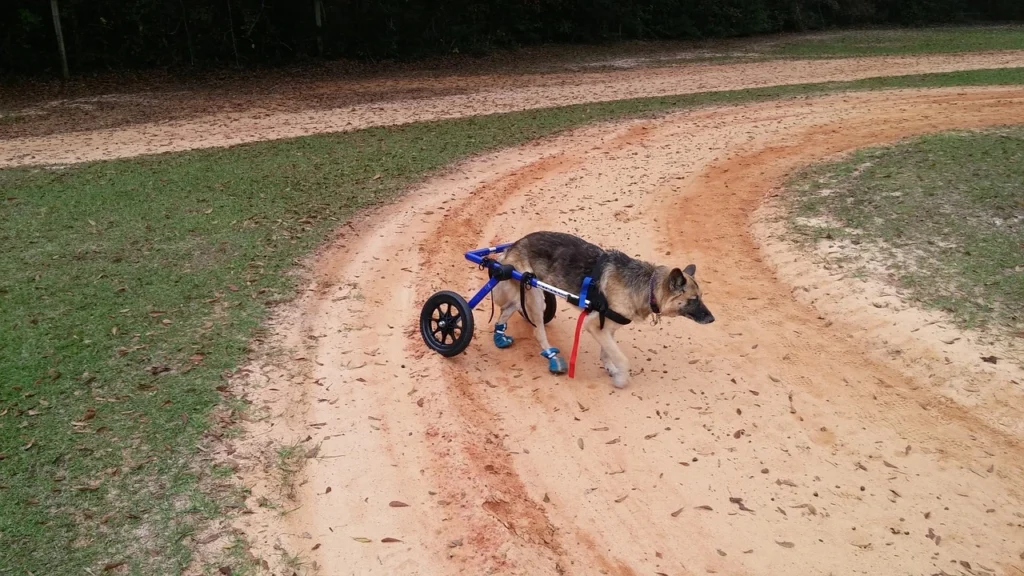
Technology and Innovation Laws
Currently, Oregon lacks specific laws directly governing pet tech products and innovations in dog health technology. This doesn’t mean these advancements are unregulated. Here’s how existing frameworks provide some oversight:
- Federal Regulations: The Federal Food, Drug, and Cosmetic Act (FD&C Act), enforced by the FDA, governs medical devices and animal drugs. Products marketed as promoting health or treating conditions in dogs might fall under FDA regulations.
- Consumer Protection Laws: Oregon consumer protection laws offer some safeguards. The Oregon Department of Justice (DOJ) can take action against misleading marketing claims or faulty products.
- Veterinary Oversight: Veterinarians play a crucial role in advising pet owners on the use of dog tech products. They can ensure such products complement, not replace, traditional veterinary care.
The Rise of Dog Tech
The world of dog tech is constantly evolving, offering exciting possibilities for canine well-being and entertainment. Here are some prominent categories:
- Wearable Tech: Trackers monitor activity levels, location, and even vital signs. Collars with built-in GPS or health sensors fall under this category.
- Smart Feeders and Water Dispensers: These automated devices dispense food or water on a schedule, potentially promoting portion control and monitoring water intake.
- Interactive Toys and Games: These toys stimulate dogs mentally and physically, offering fun and entertainment while owners are away.
- Remote Training Tools: Electronic collars or training devices can assist with behavior modification and communication between owner and dog.
Safe and Effective Dog Tech Products
With the abundance of dog tech products available, responsible selection is crucial. Here are some key considerations:
- Prioritize Veterinary Guidance: Consult your veterinarian about the potential benefits and risks of specific dog tech products for your pet’s individual needs.
- Research the Manufacturer: Choose reputable companies with transparent product information and safety certifications.
- Beware of Exaggerated Claims: Don’t fall for overstated marketing promises. Focus on products that can complement existing training and care routines.
- Start Slowly and Supervise: Introduce any new dog tech product gradually and monitor your dog’s response to ensure it’s safe and enjoyable.
Trends in Dog Health Technology
Innovation in dog health technology holds immense promise. Here are some exciting advancements on the horizon:
- Telemedicine for Pets: Remote consultations with veterinarians could become more accessible, allowing quicker response to minor concerns.
- Wearable Tech for Early Disease Detection: Trackers with advanced sensors might help identify early signs of health issues in dogs.
- Personalized Nutrition and Supplement Recommendations: Genetic testing combined with AI might personalize dietary plans and supplement recommendations for dogs.
Advancing Dog Care
Dog technology and innovation have the potential to revolutionize how we care for our canine companions. Here are some potential benefits:
- Improved Health Monitoring: Tech products can assist in monitoring activity levels, vital signs, and dietary intake, potentially leading to earlier detection of health issues.
- Enhanced Training and Behavior Modification: Technology can offer new tools for communication and training, fostering stronger bonds between dog and owner.
- Increased Convenience and Safety: Automated feeding, remote monitoring, and GPS tracking can offer convenience and peace of mind for pet owners.
Advocating for Responsible Innovation
While Oregon lacks specific dog tech laws, pet owners can be proactive advocates for responsible innovation. Here’s what you can do:
- Support Consumer Protection Initiatives: Advocate for clear labeling and marketing practices in the pet tech industry.
- Engage with Veterinarians: Share your experiences with dog tech products with your veterinarian, contributing to their understanding of these advancements.
- Stay Informed: Follow reputable sources for news and updates regarding dog tech and its impact on pet health and well-being.
Human Coexistence Laws in Oregon
Oregon, a state renowned for its stunning natural beauty and progressive spirit, embraces the human-animal bond. This is evident in its approach to responsible dog ownership, fostering a harmonious coexistence between dogs and their human companions. While Oregon doesn’t have specific laws solely dedicated to promoting dog-human bonding, several existing regulations and initiatives contribute to a pet-friendly environment. This comprehensive guide explores these legal frameworks and resources, encouraging responsible ownership and a fulfilling life for both dogs and humans.

Responsible Ownership
Oregon prioritizes responsible pet ownership, laying the groundwork for positive human-canine cohabitation. Here’s a breakdown of key areas:
- Licensing Requirements: All dogs over six months of age in Oregon require a license, ensuring proper identification and contributing to responsible pet ownership practices.
- Vaccination Laws: Oregon mandates rabies vaccinations for dogs, protecting both canine and human health.
- Animal Neglect and Abuse Laws: Oregon Revised Statutes (ORS) Chapter 167 prohibits animal neglect and abuse, promoting the well-being of dogs and fostering a safe environment for humans and animals alike.
Fostering a Strong Bond
Beyond legal mandates, several factors contribute to strong human-canine relationships in Oregon:
- Dog-Friendly Public Spaces: Oregon boasts numerous dog-friendly parks, trails, and establishments, allowing dogs and their owners to explore together. This fosters shared experiences and strengthens the bond.
- Positive Reinforcement Training: The emphasis in Oregon lies on positive reinforcement dog training methods, promoting a trusting and respectful relationship between dog and owner.
- Veterinary Care: Oregon pet owners have access to a wide network of qualified veterinarians, ensuring optimal health and well-being for their canine companions, contributing to a happier dog and a stronger bond with their human.
Laws and Initiatives
While there are no single laws solely focused on human-canine bonding, some regulations address specific concerns that can impact cohabitation:
- Leash Laws and Park Regulations: Leash laws and park regulations ensure safety for both dogs and people in public spaces. Respecting these regulations allows for enjoyable outings for dogs and their owners.
- Noise Ordinances: Some cities and counties in Oregon have noise ordinances to address excessive barking. Responsible pet ownership includes training to minimize barking and creating a peaceful environment for human neighbors.
- Tenant Rights and Pet Policies: Oregon tenant laws protect the right to own pets in some rental housing situations. Understanding these laws ensures both responsible pet ownership and respect for other residents in multi-unit dwellings.
Resources
Oregon offers a wealth of resources to promote positive human-canine relationships:
- Oregon Humane Society (OHS): The OHS provides dog training classes, behavior consultations, and resources on positive reinforcement training methods.
- Oregon Department of Agriculture (ODA): The ODA offers resources on responsible pet ownership, including information on licensing, vaccination requirements, and animal welfare.
- Local Dog Parks and Clubs: Many communities in Oregon have designated dog parks and dog clubs, providing opportunities for socialization, training, and building connections between dog owners and their canine companions.
Strong Human-Canine Bond
A strong human-canine bond offers numerous benefits for both dogs and humans:
- Improved Physical and Mental Health: Studies indicate owning a dog can decrease stress, promote physical activity, and offer companionship, contributing to overall well-being for humans.
- Enhanced Socialization: Dogs can act as social facilitators, encouraging interaction with other dog owners and fostering a sense of community.
- Increased Training Success: A strong bond between dog and owner is crucial for successful training, promoting a well-behaved and happier dog.
Responsible Ownership
Responsible dog ownership forms the foundation for a positive human-canine relationship in Oregon. Here are some key points to remember:
- Provide for Your Dog’s Needs: Ensure your dog receives proper food, clean water, adequate shelter, veterinary care, and training.
- Invest in Training: Positive reinforcement training strengthens the bond with your dog and promotes a well-mannered canine companion.
- Socialization is Key: Socialize your dog from a young age to ensure they interact well with other dogs and people.
- Respectful Integration: Be a responsible dog owner by respecting leash laws, cleaning up after your dog, and ensuring your canine companion doesn’t disrupt the enjoyment of others.
Other Relevant Dog Laws in Oregon
Canine Good Citizen (CGC) Programs and Legal Benefits in Oregon
- Canine Good Citizen (CGC) Programs: Oregon offers numerous CGC programs through kennel clubs, dog training facilities, and animal shelters. These programs train dogs in basic obedience skills like walking on leash, responding to commands, and behaving politely in public spaces.
- Potential Legal Benefits: While not a legal requirement, completing a CGC program with your dog might offer some advantages:
- Reduced Dog Licensing Fees: Some Oregon cities and counties offer reduced dog license fees for dogs who have completed a CGC program.
- Rental Approval: Landlords in pet-friendly housing might consider CGC certification a positive factor when reviewing applications from tenants with dogs.
- Insurance Discounts: Some pet insurance companies might offer discounts for dogs who have completed a CGC program.
Dog Insurance and Coverage Laws in Oregon
- Dog Insurance: Dog insurance is not mandatory in Oregon, but it’s an option to consider. It can help cover veterinary expenses for accidents, illnesses, and even surgeries, providing financial protection for unexpected costs.
- Coverage Laws: Dog insurance policies in Oregon vary depending on the provider and chosen plan. Common coverages include accidents, illnesses, surgeries, hospitalization, diagnostics, and sometimes even prescription medications and rehabilitation therapies.
Laws Regarding Dogs in Hot Cars and Animal Endangerment in Oregon
- Leaving Pets in Unattended Vehicles: Oregon Revised Statutes (ORS) 167.350 prohibits leaving an animal in a confined motor vehicle under conditions that could cause harm. This includes leaving a dog in a hot car on a warm day, even with the windows cracked open.
- Animal Endangerment: Leaving a dog in a situation where it’s at risk of injury, illness, or death can be considered animal endangerment under ORS Chapter 167.
Legal Aspects of Dog Parks and Shared Spaces in Oregon
- Leash Laws and Park Regulations: Most Oregon cities and counties have leash laws requiring dogs to be leashed in public spaces unless in designated off-leash areas like dog parks. Dog park rules often specify requirements for proper dog behavior and waste clean-up responsibilities.
- Shared Responsibility: Both dog owners and non-dog owners share responsibility for safety and respect in shared spaces. Dog owners must ensure their dogs are under control, while non-dog owners should respect leash laws and avoid approaching unfamiliar dogs without permission.
Dog-Related Property Damage and Homeowner’s Insurance in Oregon
- Dog Bite Liability: Oregon follows a “strict liability” dog bite law. This means dog owners are liable for any injuries or damages caused by their dog bite, regardless of prior knowledge of the dog’s aggressive tendencies.
- Homeowner’s Insurance: Most homeowner’s insurance policies in Oregon cover dog bite liability to some extent. However, exclusions or limitations might apply depending on the policy and the breed of dog. It’s crucial to review your homeowner’s insurance policy and consider additional liability coverage if necessary.
Service and Working Dog Laws in Employment and Public Access in Oregon
- Service Animal vs. Emotional Support Animal (ESA): Federal laws protect the rights of people with disabilities to be accompanied by qualified service animals in public places and no-pet housing. Emotional support animals, while offering emotional comfort, don’t have the same legal rights.
- Public Access Rights: Qualified service animals can accompany their handlers into most public places and establishments in Oregon, with some exceptions like sterile medical environments.
- Employment Rights: Oregon employers cannot discriminate against qualified individuals with disabilities based on their need for a service animal.
Animal Welfare and Protection Laws Against Neglect and Abandonment in Oregon
- Animal Neglect and Abuse: As mentioned previously, ORS Chapter 167 defines and prohibits animal neglect and abuse. This includes failing to provide adequate food, water, shelter, and veterinary care for your dog, or inflicting unnecessary suffering.
- Abandonment: Leaving a dog behind without making reasonable efforts to ensure its well-being is considered abandonment and a violation of animal neglect laws. If you can no longer care for your dog, surrendering it to a shelter or finding it a responsible new home is the appropriate course of action.
Oregon fosters a welcoming environment for canine companions. Understanding dog laws across various aspects, from training and entertainment to cohabitation and protection, empowers you to be a responsible owner. Complying with dog laws ensures the safety and well-being of your furry friend, protects public health, and promotes a harmonious coexistence between dogs and humans in Oregon. By prioritizing responsible ownership, we can create a happy and healthy environment for all.
FAQs
Can I take my dog hiking in Oregon?
Yes, Oregon boasts numerous dog-friendly hiking trails! Always check leash laws and park regulations beforehand. Some trails might require dogs to be leashed, while others designate off-leash areas. Ensure your dog is in good physical health, carry waste disposal bags, and keep your dog under control for a safe and enjoyable hike.
Are there any breed restrictions in Oregon?
Oregon, unlike some states, doesn’t have a statewide ban on specific dog breeds. However, some cities or counties might have breed-specific ordinances. It’s crucial to check with your local animal control department to understand any breed restrictions in your area.
What are the rules for traveling with my dog in Oregon?
There are no specific state-wide regulations for traveling with your dog within Oregon. However, some public transportation options might have pet restrictions. Always check with the carrier beforehand if you plan to travel with your dog on a bus, train, or ferry.
an I bring my dog to a restaurant patio in Oregon?
Oregon allows many restaurants to have dog-friendly patios. However, individual establishments decide their own pet policies. Look for restaurants with signage indicating they welcome dogs on their patios, and always call ahead to confirm their policy and any restrictions they might have.
What should I do if I find a lost dog in Oregon?
If you find a lost dog in Oregon, your first step should be to try and locate the owner. Check for ID tags or a microchip. You can also contact your local animal control department and shelters, reporting the location and description of the dog. Posting about the lost dog on social media platforms can also help reunite the dog with its owner.

